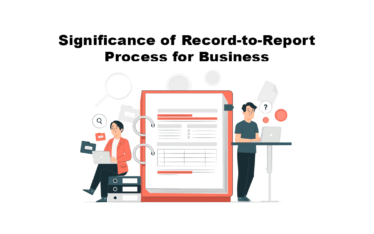Certainly, building a business is something to be proud of—and it is exciting! But data entry of receipts, invoices, and inventory purchases into your files, is definitely not so much of an excitement! There may be few entrepreneurs who get the same buzz from accounting tasks that they do from launching a new product, but not all.
It may be tempting to postpone accounting procedures so you can concentrate on the cool parts of entrepreneurship, but sooner or later you will realize that it’s a wrong idea. Keeping your ledgers up to date lets you reckon where you’re running short of cash, and whether your new project’s expenses are ballooning. If you’re not on top of your financials, money problems can blindside you.
With this accounting checklist, you can master bookkeeping even if you hate it. Here is how you can set up a checklist for accounting that will make bookkeeping workflows as routine as checking your email. And when you’re out of pocket, your staff can fill in by following the checklist. That’s the beauty of well-defined workflows.
Taking time out every day to keep up with the daily tasks of an accountant may sound like a distraction from the important work of growing your company. But the truth is that, keeping track of your income, expenses, and tax bills is essential to keep your business in the black.
Drawing up an accounting daily task checklist—and lists for weekly, monthly and quarterly tasks—requires some up-front work, and it surely pays off in the long run. Once you have an accounting checklist in place, you don’t have to think about what you need to do. Sit down, attack the different items on the list, and don’t stop until they’re done. Then you can put accounting out of your mind.
Develop accounting processes that work with your schedule. If you can enter transactions as soon as they happen, great. But if setting aside dedicated accounting time at the end of the day works better, go on that route.
Once you have a time frame, commit to it. Let your team know you’re focusing on accounting tasks at the appointed hour, and on nothing else. Here are some of the essential checklists you could keep handy:
Accounting Daily Task Checklist
- Record transactions.
- Deposit cash and cheques.
- Track your cash flow
- Update your inventory
- Back up data
Accounting Weekly Task Checklist
- Submit invoices
- Go over employee timesheets
Accounting Monthly Task Checklist
- Review accounts payable and receivable
- Review your budget variance
- Reconcile your bank statement
Accounting Quarterly Task Checklist
- Pay sales tax
- Pay estimated tax
Whether your accounting department handles reporting on a daily, weekly, monthly, or quarterly basis (or all of these) master a process for streamlining your reporting workflows as a part of your accounting process checklist. And don’t forget about year-end.
Give considerations towards the accounting data that’s most relevant to your reporting, and ensure you have easy access to financial dashboards that showcase real-time data to pull into your reports.
The Accounting Automation Alternative
As your business grows, there would be more and more transactions to be entered. If you cringe from the workload and time involved in your daily accounting checklist, there are ways to take some of that work off your hands.
Outsourcing regular accounting tasks to a professional accountant is one option, if you can afford it. Even if you have an accountant on the payroll, chances are that their time is better used on higher-order tasks.
Go To Tip
With outsourcing of accounting & using of softwares, reports can be auto-generated and shared with company’s relevant leadership. If you’re embracing accounting software, you can cross generate reports of your to-dos, since the platform will handle generation and submission of reports for you.





